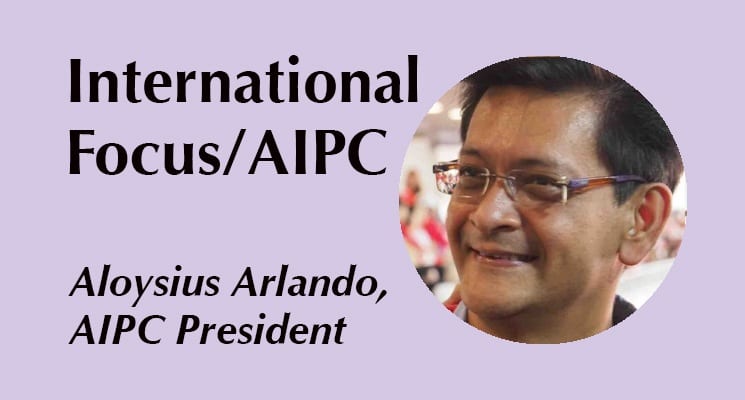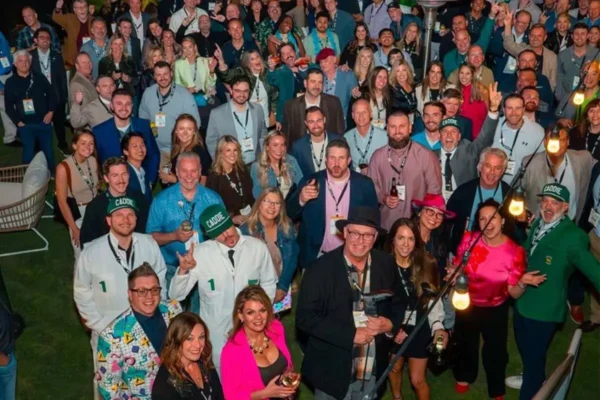by Aloysius Arlando, AIPC President
By 2020, millennials will make up more than half of the global workforce and account for the largest segment of business travelers. Millennial travelers are our future and there is no better time for industry organizations, particularly center management, to explore the potential of this new market.
Millennials are a unique group, with expectations and experiences-seeking that are very different from the Gen-Xers and baby boomers we have been working with. In my opinion, to remain relevant and competitive, venues and event organizers need to recognize that they can no longer function on a “one-size-fit-all” basis when it comes to event design and space planning. Instead, a deep understanding of the burgeoning group of millennial business travelers, who eventually will form the next generation of decision makers, is critical.
Events which are powered by data and technology and able to provide differentiated and authentic experiences will appeal to the young business travelers as they wish to stay connected throughout the customer journey. The instant gratification mind set of millennials also means that every touch point, both online and offline greatly matters–from technological integration to the onsite experience, food as well as venue setup. Millennials want to be heard, hope to make a difference and crave affiliation with communities that they can identify with. Therefore, it is critical for event organizers and venue managers to keep young business travelers actively engaged in inviting spaces, so that they can develop a strong sense of belonging with other like-minded individuals. They often have short attention spans and lose interest quickly, hence the desire for concise, engaging and productive meetings which are out of the norm and less formal.
As millennials are deeply influenced by technology and extremely reliant on their smartphones and laptops, moving ahead, only centers which are highly wired and able to provide stronger and more reliable and seamless wi-fi coverage will be able to address the growing needs of these tech savvy business visitors and make them feel at “home.” Globally, event organizers are also increasingly making use of mobile apps to engage their target audience and create customised value propositions. What distinguishes a good venue from a truly world-class one will be how well it allows events partners to harness the potential of technology. As technology continues to evolve and improve, it is important for center management teams to constantly review their equipment and remain flexible towards changes which are necessary.
Singapore FinTech Festival (SFF), which is held yearly at the Singapore EXPO, for example, relies heavily on its mobile app to communicate with its attendees. To appeal to the millennial audience, who typically have a shorter attention span and many screens competing for their information all the time, the app was gamified and loaded with heavy and eye-catching images. This required strong support from the venue management which provided scalable wi-fi to support the data requirements of the app.
This younger group of business visitors values personal connections and desires to participate and immerse themselves in communities of like-minded individuals, according to a study done by AmEx Global Business Travel. Consequently, they are increasingly looking out for immersive learning and unique experience. Gone are the days where event organizers can involve their target audience in a one-to-many kind of dialogue. It is thus vital for venues to transform and begin to work more closely with event organizers to create and deliver differentiated experiences that leave an impression on event attendees.
SFF also sought to appeal to the millennials’ need for differentiated and authentic experiences by serving Instagram-able fusion dishes such as “Nasi Lemak” (coconut infused fragrant rice dish) sushi on a conveyor belt and bite-size portioned food in brown bags to allow attendees to grab and go. In addition, the venue management worked closely with the event organizer to enhance creativity in event space design through multiple-themed zones to interest and engage even the young visitors. This includes the Sandbox, with a design inspired by the Singapore vintage dragon-shaped playground, as well as the F&B zone with a Straits Chinese heritage theme.
Similarly, the past Echelon Asia Summit, made use of beanbags instead of chairs to create an informal and conducive corner for ideation and community building. Instead of the usual catering, event organizers, through the assistance of the venue provider, brought in food trucks which served novel dishes to cater to the largely millennial crowd. Everything, including the meetings, exhibition, conference and dining are all meshed together into one large playground so that visitors stay continuously engaged.
While the orientation of most events is mostly decided by organizers, as venue providers, it is important that we keep abreast of the needs of the industry. Innovative event designs that are user-centric can only be made possible through active collaboration between organizers and venues. Venues ought to remain flexible and evolve their suite of services to suit the evolving needs of customers now and in the future.
In addition to his role as AIPC President, Arlando is the CEO of SingEx Holdings, which comprises several entities focusing on the MICE business; including the management of the Singapore EXPO Convention and Exhibition Center. He is also the incoming president of the Singapore Association for Convention and Exhibition Organizers and Suppliers (SACEOS), organizer of Singapore MICE Forum. For more info, visit www.saceos.org.sg.
AIPC represents a global network of more than 185 leading centers in 60 countries with the active involvement of more than 900 management-level professionals worldwide. It is committed to encouraging and recognizing excellence in convention center management, based on the diverse experience and expertise of its international representation, and maintains a variety of educational, research, networking and standards programs to achieve this. AIPC also celebrates and promotes the essential role of the international meetings industry in supporting economic, academic and professional development and enhancing global relations amongst highly diverse business and cultural interests. For more info, visit www.aipc.org.































